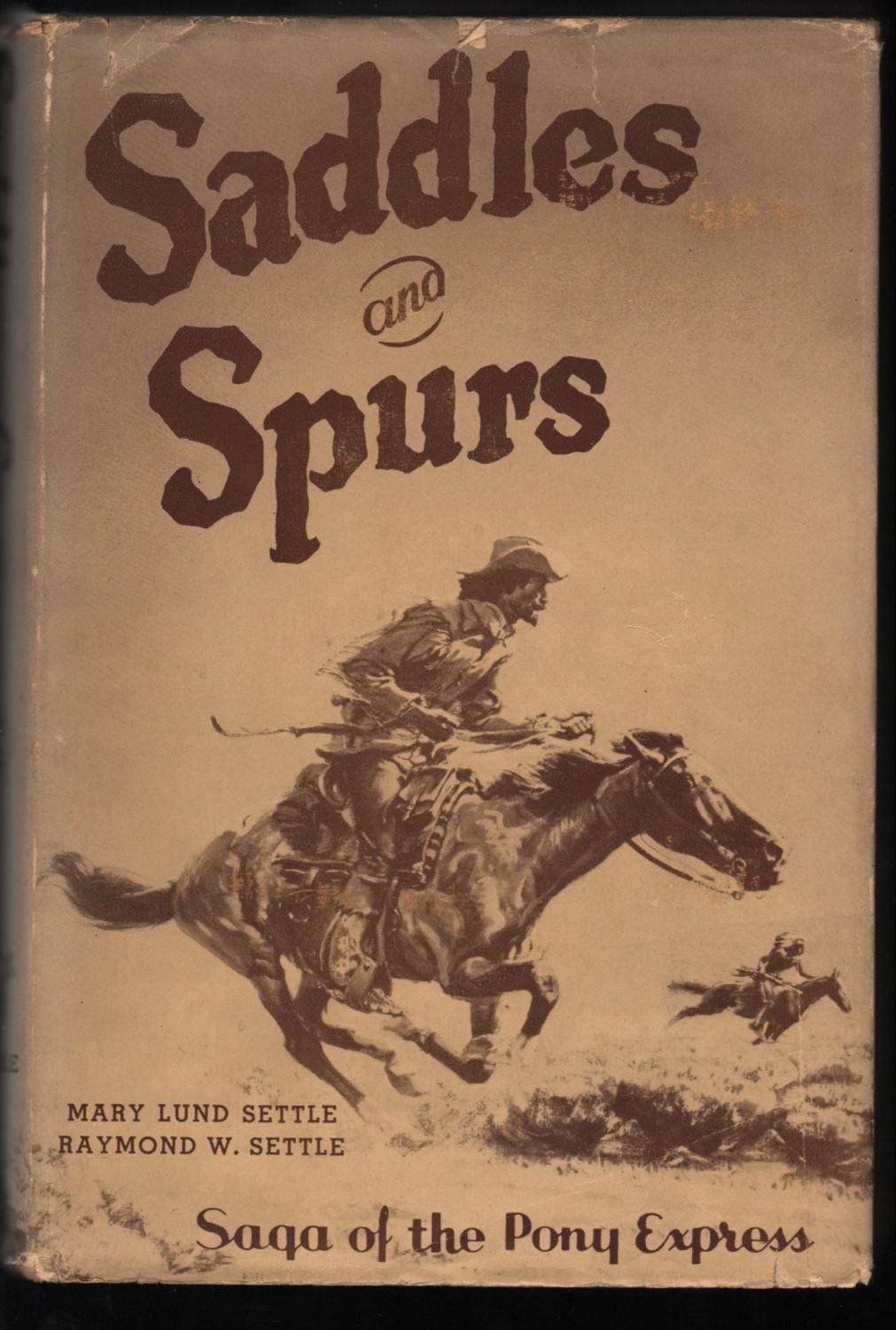Mary Lund Settle and Raymond W. Settle, Saddles and Spurs (1955)
 Saddles and Spurs is one of the seminal books on the Pony Express. Every later work I’ve read references it, along with the Settles’ Empire on Wheels. In my opinion, though, the earlier work is far more informative, better researched, and far better written. (Sample sentence: “Everybody was hilarious and the town had not known such excitement in many a day.”) Saddles and Spurs is more of a propaganda piece, a hagiography of the Pony Express and the men (yes, all men) who made it happen. (Another sample sentence: “More than anything else in the history of our country, [the Pony Express] stands as a glowing symbol of the vision, daring, fortitude, and sheer courage of American youth.”)
Saddles and Spurs is one of the seminal books on the Pony Express. Every later work I’ve read references it, along with the Settles’ Empire on Wheels. In my opinion, though, the earlier work is far more informative, better researched, and far better written. (Sample sentence: “Everybody was hilarious and the town had not known such excitement in many a day.”) Saddles and Spurs is more of a propaganda piece, a hagiography of the Pony Express and the men (yes, all men) who made it happen. (Another sample sentence: “More than anything else in the history of our country, [the Pony Express] stands as a glowing symbol of the vision, daring, fortitude, and sheer courage of American youth.”)
Unlike Empire on Wheels (which concerns Russell, Majors & Waddell, the firm that started the Pony Express), Saddles and Spurs is not footnoted. The bibliography is partial, referring the reader to the earlier book for a fuller list of references. Four chapters are given to descriptions of some of the riders and some of the stations. There are lengthy digressions on two men, Joseph (Jack) Slade and Ben Ficklin. Both were instrumental in running the Pony Express, but really, how important is it that we know Mr. Ficklin choked to death on a fish bone in a Washington D.C. restaurant?
It may be that I’ve read enough source material about the Pony Express that anything which does not add to that knowledge feels like a waste of time. This may be one of the first books to take the Pony Express seriously, in that it wants to dispel some myths (though also perpetuating others), and defend men whom the authors view as heroes (especially William Russell, the financial wheeler-dealer who is variously characterized anywhere on the gamut from a wizard to fraud, depending on any author’s point of view). Later books, building on this one and other works, have covered the material here much better. Added to my frustration with the tone of the book is its relentless description of Native Americans as “savage” and “simple” impediments to progress. Admittedly, this type of language is perhaps typical of the mid-1950s, but as I recall, the Settles’ earlier book was not so overtly racist in its depiction and discussion of Native Americans.
All in all, my suggestion is that if you’re looking for solid information on the Pony Express, this isn’t really your best source. The National Park Service resource study (available as a PDF) is far more informative on the general history, and the other books I’ve read and reviewed here are better sources on more specific topics related to the Pony Express.